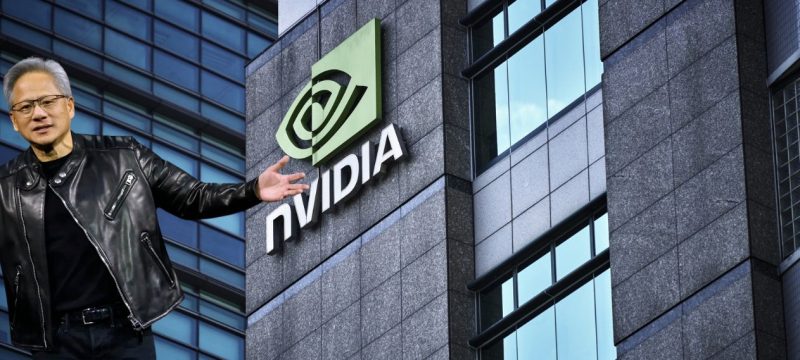Nvidia has warned of a potential $5.5 billion financial loss due to new export restrictions imposed by the Biden administration on advanced semiconductors, especially targeting China. These restrictions are a part of the ongoing tech conflict between the two largest global economies.
The California-based company, a key player in the AI industry, revealed that it will now need a special export license to sell its highly demanded H20 AI chips to China, including Hong Kong. This chip has been one of Nvidia’s top products in the Chinese market.
Read more: Nvidia’s AI Boom Drives 80% Revenue Surge, Beats Estimates
The news, disclosed in a regulatory filing on Tuesday, came after US officials informed Nvidia last week that the license requirement would stay in place “indefinitely.” This development led to a nearly 6% drop in Nvidia’s stock during after-hours trading.
Nvidia explained that the US government’s decision was based on concerns that these chips might be used in supercomputing projects in China, an area that the US is increasingly monitoring due to China’s rapid advancements.
The $5.5 billion figure includes potential costs related to unsold inventory, purchase commitments, and reserves tied to H20 products. This move is part of the broader US-China trade war, where both countries have imposed tariffs and tightened controls over strategic sectors. Semiconductors, due to their importance in defense, AI, and emerging technologies, have become a central issue in this rivalry.
Marc Einstein, Chief Analyst at Counterpoint Research, said Nvidia can likely absorb this loss, but noted that this situation could be a negotiation tactic. He also predicted that the US government may eventually adjust or grant exemptions to the restrictions, as it impacts the wider US semiconductor industry.
Founded in 1993, Nvidia initially gained fame for its graphic processing units (GPUs) in gaming but later pivoted to AI chips, establishing itself as a leader in the field. Its chips power various machine learning applications across industries, from autonomous vehicles to natural language processing, which has made Nvidia a target of US export controls designed to limit China’s access to cutting-edge computing technologies.
Nvidia’s position was recently shaken when it was revealed that Chinese developers had created a rival AI chatbot, DeepSeek, at a significantly lower cost than US-based models, a development that surprised US officials.
Rui Ma, founder of Tech Buzz China, speculated that unless these restrictions are relaxed, the US and China semiconductor supply chains will likely “decouple” completely, as Chinese firms can increasingly rely on domestic alternatives. Industry experts suggest that China might accelerate its chip development, while US companies like Nvidia may turn to other markets or lobby for policy changes.





